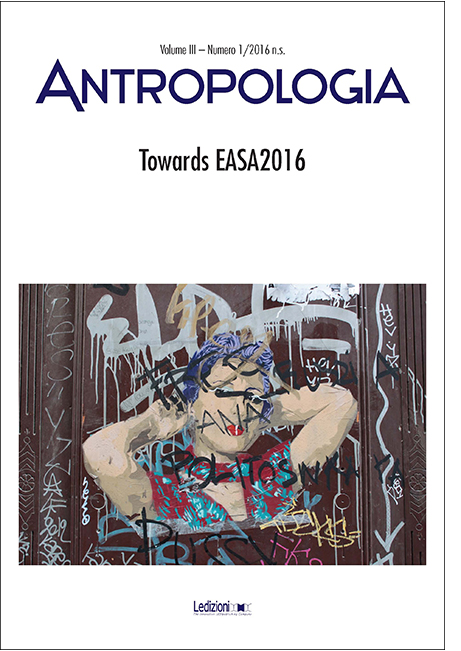New Family Relationships: between Bio-genetic and Kinship Rarefaction Scenarios
DOI:
https://doi.org/10.14672/ada2016434%25pKeywords:
Kinship, Genealogical Space, Homoparental Filiation, Lexicon of Relationships, ItalyAbstract
Since the ‘90s, there has been a renewal of interest on kinship studies produced by emerging topics within research into gender, personhood and particularly, the construction of kin relationships through Assisted Reproductive Technologies. The deconstruction of kinship as “a natural fact” has definitely questioned and challenged the genealogical dimension of kinship, which was traditionally based on the link between heterosexuality and procreation. The first part of this paper briefly reconstructs the new theories toward Euro-American kinship perceptions in anthropology. The focus is on the changes resulting from new assisted reproduction techniques, low fertility in relation to changes in genealogical space; and finally, issues relating to biopolitics. In the second part, starting from the ethnographic work that proponents have been conducting for years on homo-parental (same sex) families in Italy, the paper explores the way in which “new forms of family” are currently creating new textures of social cohesion and “relatedness”. The reflections of this paper focus on one hand, the different forms of procreative constructions and parenthood/intentional parenthood, and on the other, the production of “multiple genealogies”, new forms of relatedness and a new lexicon of relationships.Downloads
Published
2016-03-23
Issue
Section
Articles
License
Authors maintain the copyright of their original work and grant the Journal the right to first publication, licensed after 36 months under a Creative Commons Licence – Attribution, which allows others to share the work by indicating the authorship and first publication in this journal.
Authors may agree to other non-exclusive licence agreements for the distribution of versions of their published work (for example in institutional archives or monographs) under the condition that they indicate that their work was first published in this journal.



